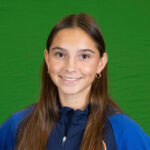Paul Riley among “a lot of good names” under consideration for U.S. Women’s job
By Charles Boehm
Veteran coach Paul Riley has been contacted in regards to the U.S. Women’s National team head coaching position recently vacated by Pia Sundhage, though he believes he’s only one of many qualified candidates being eyed by the U.S. Soccer Federation.
Riley shared his thoughts on the matter in a conversation with Soccer Wire on Monday afternoon and while he sounded a realistic tone about his own prospects for snaring one of the most desirable positions in women’s soccer, he did not hesitate to lay out what he believes will be the most pressing concern for the new USWNT boss: guiding the new women’s professional league currently being formed under the auspices of U.S. Soccer and a range of smaller leagues and stakeholders.
“It’s extremely nice to even be considered,” said the Englishman, who has extensive coaching experience at the youth and amateur levels in addition to his impressive tenure at the helm of the Philadelphia Independence in the now-defunct Women’s Professional Soccer league.
“I’ve got a lot of ideas I think I would bring into the program. I think number one is working with the new league, and making sure that the new league is established,” he continued. “I feel it’s really important at this point and it’s something that hasn’t been done with the last two leagues. This new league needs to be connected in to the national team and the national team coach’s role in there is going to be really important, to make sure this league works, and that we help out the league, and the players have a place to play for the next three years. It’s a difficult situation with no league. I know everybody always looks at the [Women’s] World Cup and the Olympics, but … you need players to play and improve.”
Riley reckons he’s only one of many strong contenders to succeed Sundhage, who stepped down earlier this month to return to her homeland of Sweden, where she is expected to be named that country’s new national team coach in the near future.
“We’re still at the resume stage, at the cover letter stage,” he said. “I’m sure everybody’s got great resumes, and I think whoever gets the job will be a big plus to the program.
“I’m assuming there will be six, seven on the shortlist,” he added, citing veterans Tony DiCicco, Jill Ellis and April Heinrichs as well as Illinois associate head coach Marcia McDermott, Penn State head coach Erica Walsh and current U.S. youth national team coaches Steve Swanson and Albertin Montoya as potential candidates he’d heard through the grapevine.
“I think it’s a mix between college coaches, professional coaches, youth national team coaches, so I think it’s a big mix of people.”
While he doesn’t boast U.S. Soccer insider credentials like many of those names, Riley can point to lengthy experience at all levels of the women’s game in this country. He also took a noteworthy, concrete step towards providing a professional environment for players marooned by WPS’ disappearance earlier this year by spearheading the creation of the Women’s Pro Supergroup, a collection of former WPS players he gathers for periodical training camps and friendly matches in order to stay as fit and sharp as possible in the absence of a professional league.
“Our [U.S.] players are playing in college. So when they get out of college they need to go into a pro environment immediately, and we need to make sure that environment is there,” said Riley, one of many experts quick to point out that this country’s built-in advantage over its leading competitors in the women’s game is shrinking. “Providing that’s the number-one priority, to be honest with you. Finding great players in this country, I think, is easy, there’s loads of them. All different ages. And I think putting a national team of players together is not the hardest thing to do.
“But we need a league for these kids. We need them playing ten months a year, not playing three months a year, four months a year. So I’m hopeful that this league will be key in the whole [national team] program, whoever takes over…they will be able to develop more players and put them in a professional atmosphere every single day and not have to send them to train on their own, not have to come into a camp for two weeks and then go back to train on their own for two weeks … In the long run, the rest of the world catches up if we keep doing it. So we need to change it, I think.”











